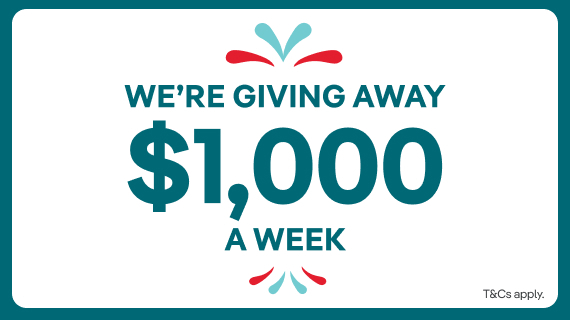The simple property strategy for financial freedom and your dream lifestyle
For many people, rentvesting is about getting a foothold in the property market; for others, it's about creating an investment portfolio.
With interest rates dipping and prices set to keep rising, this property strategy is likely to become even more popular.

Though not a new concept, it's become an increasingly popular way to enter the market amid declining affordability, especially for those wishing to remain in costly lifestyle areas in the inner city or by the beach. The current downward interest rate cycle makes it even more attractive.
New South Wales-based Mortgage Choice broker Rob Lees says it's a logical strategy.
"The concept is rent where you want to live and invest where it's better for investment — whether that's better capital growth potential, better rental yield or more affordability.
"Rentvesting gives you a lot more choice as to where you buy; you have the whole country to consider."
Here's how to know if rentvesting is right for you and how to make it work.
Does rentvesting make sense right now?
National home prices continue to rise, growing 3.7% in capital cities and 5.2% in regional areas over the year to May, according to the PropTrack Home Price Index.
'What is rentvesting': youtube.com/realestatecomau
Property Mavens buyers agent and property adviser Miriam Sandkhuler says in a rising market, those waiting for a larger deposit risk missing out.
"In a moving market, you can never save at the rate at which the market can increase. Rentvesting gets you in; it's a fantastic opportunity for people to get their foot in the door," she says.
Lower interest rates, which boost borrowing capacity and reduce mortgage repayments, make rentvesting more accessible.
Inspire Realty property advisor and buyers advocate Colin Lee says robust home price growth and ongoing high rents create ideal conditions for rentvestors.
"This means owning a rental property in the right location can generate strong cash flow."

Location is key when it comes to rentvesting and any kind of investment property. Picture: Getty
However, lower interest rates also encourage more buyers, fuel competition and drive up home prices.
Who is rentvesting for?
Rentvesting tends to suit younger buyers who aren't ready for a family home and want to enter the property market, as well as people adjusting to smaller budgets such as those going through separations. However, it's not limited to just the young, Mr Lee says.
"Rentvesting is ideal for young professionals, couples and even families who want lifestyle flexibility but also want to build wealth through property."
Mr Lees cautions that rentvesting can exclude first home buyers from grants and benefits that aren't available to investors.
"You only get these grants once, so if you buy the investment property first, when you move to an owner-occupied property, you'll miss out."
Better than buying your own home?
In very expensive areas, Ms Sandkhuler says renting "can be a comparatively cheap option rather than spending millions of dollars on a house", especially if this enables you to invest in other assets.
"I know people who are renting and sharing a house with flatmates but have bought a well-located house in a regional city."
Mr Lees says if people are willing to rent very cheaply, rentvesting can make more sense on paper than purchasing a home.
"Just based on numbers, it might be better to be a rentvestor rather than buying an owner-occupied property and taking out a big mortgage that isn't tax deductible," he explains.
"Some purists develop property portfolios without ever buying their own home."
But few people remain rentvestors indefinitely, he adds.
'The renters taking a different route onto the property ladder': youtube.com/realestatecomau
"Most want the security of their home eventually, especially when they want to start a family. So they'll leverage or sell the investment property to buy something that's theirs. Ultimately, it becomes an emotional decision rather than a financial one."
How does rentvesting affect borrowing capacity?
Your borrowing capacity as a rentvestor hinges on your current rental expenses, viewed as a liability by banks, and the rental income potential from your investment.
If you're paying minimal rent by living with parents or house sharing, you may be able to borrow more than if you were buying your own home.
"This is because there'll be rental income included in your serviceability calculation," explained Mr Lees.
'Borrowing capacity explained': youtube.com/morgtagechoice
Conversely, paying high inner-city rents may mean you can borrow less than if you were buying your own place.
"If you're paying $1,000 a week in rent and your investment yields only $500 a week rent, you're starting a bit behind."
It's also worth factoring in the potential benefits of negative gearing, where rental losses can be deducted from your income at tax time. Consult your accountant for advice.
What and where should rentvestors buy?
While location depends on budget, key factors for a successful rentvesting spot are a growing population, strong rental demand, infrastructure investment, proximity to employment hubs, and limited housing development to avoid a rent-reducing oversupply.
"Ideally you want good capital growth, rental growth and a strong rental yield," Mr Lees says.

Growth corridors such as south east Queensland are key areas for rentvesters to consider. Picture: Getty
Mr Lee advises buyers to "focus on growth corridors and emerging hotspots".
He says recent promising investment locations include parts of south east Queensland, Western Sydney and outer Melbourne, where properties remain affordable.
When it comes to the property itself, rentvestors can easily get it wrong, he adds.
"They buy something that appeals emotionally but doesn’t stack up financially. Another risk is not understanding cash flow, such as underestimating holding costs or vacancy risks.
"Always do your research or engage a buyer's agent who understands investment-grade property. It's about securing the right property, at the right price, in the right location, with the best value-adding and growth potential."
Ms Sandkhuler says it can help to understand if you're seeking capital growth, cash flow or a mix of both.

Industry experts encourage rentvesters to also consider their future plans and personal property goals. Picture: Getty
"The type and location of property you buy is determined once these goals are refined."
Rentvesting for the long term?
Your rentvesting strategy may be purely about getting into the market, but you still need to think long term, Mr Lees says.
"For your property to achieve substantial capital growth, you need to be willing to sit on it for at least one, two or even three boom periods."
As you build equity, you might even leverage it to purchase another investment property.
"I have clients who buy multiple properties from a rentvesting perspective because they want to grow a portfolio while continuing to live where they choose," Ms Sandkhuler says.
"This means you might not even have to sell the asset to buy your own home."



